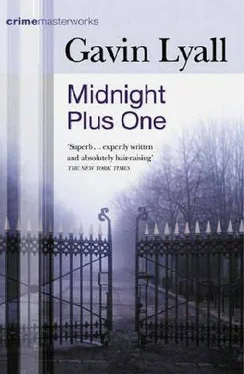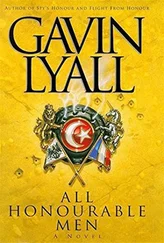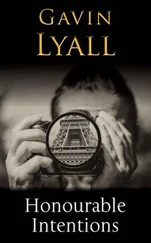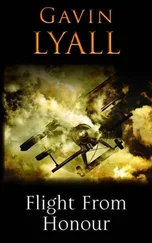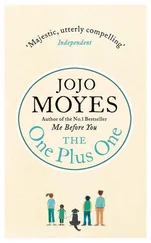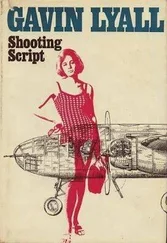Ginette banged her knife down. 'Ah – we knew it: an English plot. When things are going badly, you pick onla France. It is an old story to us. So now the English will tell us how to grow wine: that is very interesting. Go on, Louis – tell me.'
'My dear Ginette – if I were honest, I would tell you to stop making wine at all and grow cabbages on that hill-' I nodded at the back of the house and the vineyards beyond it. 'However, a hundred years ago the de Marises realised they could never improve Pinel and concentrated instead on making it famous. So now you, sell the most expensive cabbage soup on the market. Which means you can afford far better wines for your guests.'
She smiled quietly at me and tinkled a bell by her plate. Maurice appeared, whipped away our plates, and put a cheese-board on the table – with a bottle of Pinel. I made a face.
She twisted it to show me the label. 'What do you think of our new design, Giles?'
The picture of the Château was gone. Instead, it was a simple affair of copperplate script on a white label that was shallower but longer than usual. The paper had a thick but almost transparent look, like a good watermark paper.
She said blandly: 'You don't recognise it?'
I shook my head doubtfully. It looked familiar, somehow…
She grinned. 'The old English five-pound note. The exact size and amount of lettering. I never understood why you stopped making that beautiful money.'
I said grimly: 'They said it was too easy to forge. Now, I see why.' I turned to Maganhard. 'Ginette's work in the Resistance was forging: she used to make passes and ration cards for us. Nice to see somebody's wartime training being useful in peace, isn't it?'
He twitched a small smile at me. 'I believe that is the principle on which you are working for me, Mr Cane.' He half stood up. 'If you will excuse me, Comtesse, I would like to go and rest. I have things to think about.'
Ginette nodded gracefully. 'Maurice will take you-'
I said: 'Hold on.'
Maganhard stayed where he was, bent awkwardly, half out of his chair.
I said: 'I think the time's come for me to know a bit more about just why you're going to Liechtenstein.'
'I do not see that that is necessary.' But he sat down again.
'Let me get one thing clear, then; after this morning's affair, we all ought to be dead. Bernard was rated a better gunman than Harvey Lovell – and I expect the ones with him were rated far better than me. Luckily things didn't go by the form book – but it means whoever-it-is has got very damn serious about trying to kill you. That's one point.
'The other is thatthey know what you're trying to do -but I don't. And both together gives them just too much of a margin. We've already been outguessed twice. The next time…' I shrugged.
He just went on giving me his steel-statue look. Then he asked: 'What do you wish to know?"
'The whole damn story.'
He frowned and glanced at Ginette. I said: 'I'll go bail for her; we're both security-minded.'
He frowned again, then probably remembered that if shewasn't security-minded, he was sunk, anyway.
Ginette smiled distantly and pushed the cheese-board towards him. He shook his head briefly, then turned to me. 'What do you know about Caspar Aktiengesellschaft, Mr Cane?'
'Just that it's a holding and marketing company, registered in Liechtenstein, that owns majorities in a lot of electronics firms in this end of Europe. And that you're something to do with it.'
'Quite right – as far as it goes. I own thirty-three per cent of the corporation.'
'One-third.'
'No, Mr Cane.' He allowed himself a two per cent smile – practically laughing out loud, for him. 'Do you know the other advantage of Liechtenstein registration – apart from the tax advantages?'
I shrugged. 'Secrecy of ownership, I suppose.'
He nodded decorously. 'Quite right. Nobody need know who owns a company. Let me explain: I own thirty-three per cent. The shares are divided thirty-three, thirty-three -and thirty-four.'
By now he was beginning to enjoy showing how ignorant I was.
I said: 'So the thirty-four can outvote you, or the third man, but not both. So who are they?"
'The other thirty-three per cent is held by a Liechtenstein resident, Herr Fiez. He handles the day-to-day affairs of the company and conforms to the recent law that a Liechtenstein resident must be on the board of such companies.' From the tone of his voice, I got the idea that Flez's worth was mainly that he conformed with the law.
When he stopped there, I said: 'So – who owns the thirty-four per cent?'
'The problem, Mr Cane,' he said, 'is that we are not sure.'
I took a sip of the Pinel which I found had been poured for me. It wasn't bad, but it wasn't much else.
I shook my head. 'Sorry – I don't follow. As major shareholders, you can look at Caspar's books and see who owns shares.' Then a new thought struck. 'Or are we talking aboutbearer shares?'
He dipped his head gravely. 'That is quite right.'
'Jesus. I thought they'd gone out with chorus girls drinking champagne out of slippers. You really can count your troubles now, can't you?'
He got a little stiffer. 'It was a question of secrecy. Any company must have managers handling certain parts of its affairs. And they have wives and friends to whom they might talk. With bearer shares-'
'I know all that.' Bearer shares. Pieces of paper – share certificates – certifying ownership of so many shares in a certain company. But without an owner's name on the certificate, or in the company's books. Pieces of paper which belonged to anybody who happened to have them -unless somebody else could prove differently. No records of ownership, no stamp duty paid when they changed hands. So probably nothing to prove they'd changed just by somebody sticking his hand into somebody else's pocket.
I nodded. 'All right – whoshould this thirty-four per cent belong to?'
He sighed gently. 'The man who most wished to be secret. Max Heiliger.'
I'd heard of him. I glanced at Ginette – and so had she. One of those misty, legendary background figures whose nephews get into the gossip columns – mainly because they're his nephews. But nothing about Heiliger himself – even if you could find out something. You might also find out he owned the paper you worked for.
Then suddenly I remembered something hehadn't managed to keep out of the papers.
'He's dead,' I said. 'Killed in a private plane crash up the Alps a week or so ago.'
The smile was small and bleak. 'That is the trouble, Mr Cane. A few days after Max was killed, a man appeared in Liechtenstein with Max's share certificate demanding an important change in Caspar's affairs. You understand that with his thirty-four per cent he can outvote Herr Flez's thirty-three – unless I am there.'
With bearer shares there can't be any voting by proxy. The only proof that youare a shareholder is if you're there waving your share certificate.
Maganhard went on: 'Under the company's rules, any shareholder may call a meeting in Liechtenstein by giving not less than seven clear days' notice, midnight to midnight.'
'When does that notice expire?'
'He called it for the soonest possible time. The meeting must begin at midnight tomorrow plus one minute. We have a little more than thirty-six hours.'
I nodded. 'Should be time enough. But even if it isn't -can't you call a meeting for seven days later and reverse his decision?'
'His proposal, Mr Cane, is to sell all of Caspar's holdings. That could never be retrieved.'
I sipped at my glass. 'Wants to cash the company in and run for the hills, does he? He doesn't exactly sound like a legal heir. Who is he?'
'According to Herr Fiez, he called himself Calieron, a Belgian, from Brussels. I have never heard of him.'
Читать дальше
